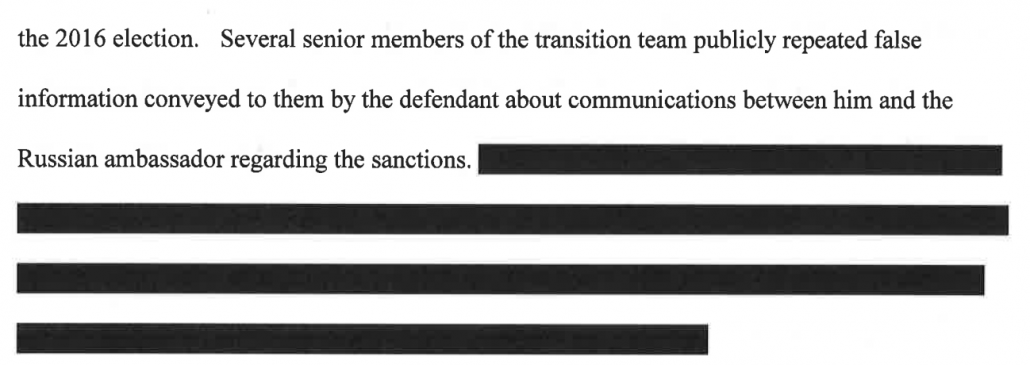Sam Patten Reminds Us Cooperation Deals Are Not Cookie Cutters
One of the last filings of 2018 in the cases I keep track of here was a three line joint motion in Sam Patten’s case, noting that the parties had filed a joint status report under seal. Sam Patten, recall, is the sleazy influence peddler who (like Paul Manafort) was a business partner with alleged GRU operative Konstantin Kilimnik who first proffered information to Mueller’s office on May 22 of last year, but who didn’t plead guilty until August 31. He pled guilty to lying on FARA registration, lying to the Senate Intelligence Committee and withholding documents from them, in part about setting up straw purchasers to let foreigners donate money to Trump’s inauguration. He’s also got ties to Cambridge Analytica, though that did not show up in his plea at all.
So rather than a routine status report — either telling the court that Patten continued to cooperate with Mueller, the DC US Attorney’s Office, and other law enforcement entities with which his deal required him to cooperate — or rather than moving towards sentencing, the government instead filed something under seal.
When asked what this might mean, I’ve deferred any answer, because it could be so many things and there’s so little to go on.
But CNN’s Katelyn Polantz has what (for any straight news outlet — and I mean that as a genre issue, not a competence one) is remarkably good analysis. She points to the timing of Patten’s plea (just before Paul Manafort was set to go to trial on his own FARA crimes, and thus just weeks before Manafort decided to flip) and to Patten’s multi-office cooperation obligations to suggest this sealed plea may have to do with Mueller’s case.
Patten agreed to cooperate with the Mueller investigation and other Justice Department actions before Manafort pleaded guilty to criminal charges in September. Manafort had been Mueller’s target for almost a year before his plea deal — and the Mueller team initially charged him with a host of financial crimes and foreign lobbying violations. A jury found Manafort guilty of tax and bank fraud related to his Ukrainian lobbying proceeds, then Manafort flipped and agreed to help prosecutors in September to avoid a second trial related to his foreign lobbying operation.
Patten was lined up by prosecutors as a person involved in that planned second trial against Manafort.
Typically, in a plea deal such as Patten’s, once prosecutors no longer need his cooperation for an upcoming trial or to put pressure on a criminal target, they would move the case to the sentencing phase. No date has been set yet by the court for Patten’s sentencing, and it’s still not determined when that process would even begin.
What she doesn’t say, but I would add, is that we’ve heard remarkably little about Manafort’s fate since a hearing on December 11 where Manafort’s lawyers pushed to begin adjudicating this month (in advance of his sentencing in the EDVA case) whether they agreed that Manafort had lied to the government while supposedly cooperating, even while saying they were having ongoing discussions with the government about those lies. Judge Amy Berman Jackson set a deadline for next Monday, January 7, for Manafort’s lawyers to file some kind of statement about whether they agree with the government or not. Sure, the holidays happened in the middle of that. But throughout the period before that, we got regular updates from Rudy Giuliani and Manafort’s lawyers making the extent of Manafort’s cooperation clear; we’ve gotten nothing since December 11.
Polantz also notes something most reporters covering the Mueller investigation forget: prosecutors don’t just hold off on sentencing until a cooperating witness testifies (note, the same mob of reporters also falsely suggest that Michael Cohen’s cooperation with Mueller is done, misunderstanding that Mueller will reward Cohen’s cooperation with a sentencing adjustment if it continues). Indeed, the only Mueller cooperating witness who has thus far testified before sentencing has been Rick Gates, and he remains under a cooperation agreement over five months later. Prosecutors also use (and Mueller seems to have especially) cooperating witnesses to pressure other witnesses. Indeed, that seems to be the significance of this passage from the addendum describing Mike Flynn’s cooperation.
Mueller used Flynn to get all the other people — starting with but by no means limited to KT McFarland — who originally lied about the Russian conspiracy to testify, and to do so as witnesses who clarified their testimony rather than sustained a lie and therefore got branded a liar making them less useful as witnesses at trial.
In other words, Polantz seems to suggest that Mueller rolled out Patten’s cooperation agreement just before Manafort’s trial in a bid to get him to flip. That worked. But not well enough to get Manafort to really cooperate.
Which may explain why his current status is such a big secret: because no one wants to give Manafort — or Trump — any hints about his status until Manafort decides what he’s going to do this week.
As I disclosed last July, I provided information to the FBI on issues related to the Mueller investigation, so I’m going to include disclosure statements on Mueller investigation posts from here on out. I will include the disclosure whether or not the stuff I shared with the FBI pertains to the subject of the post.
